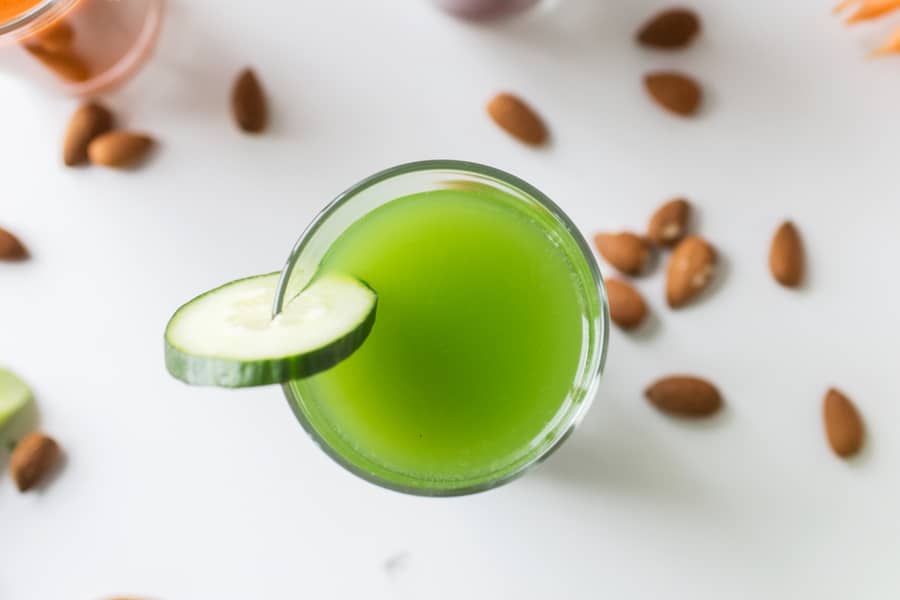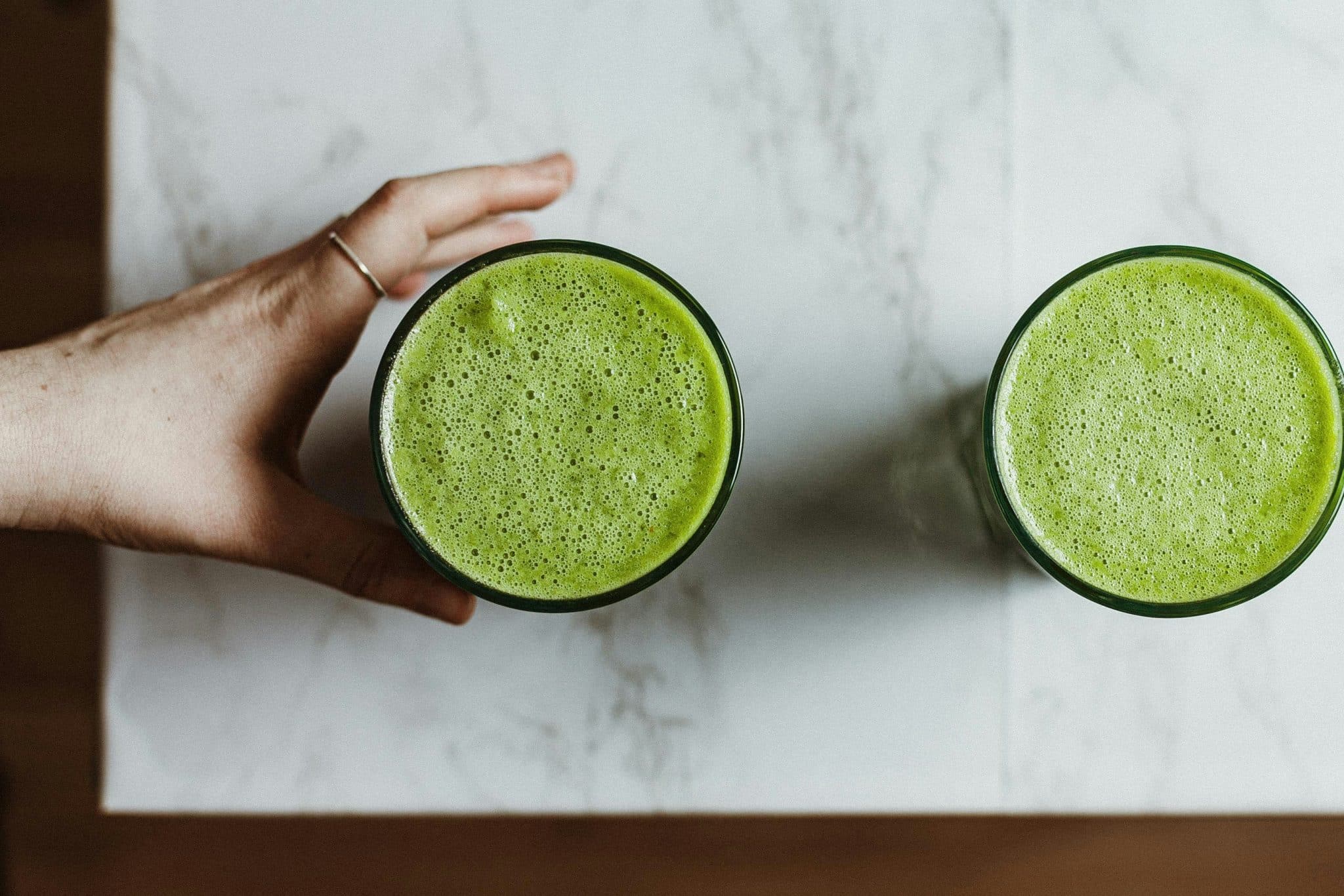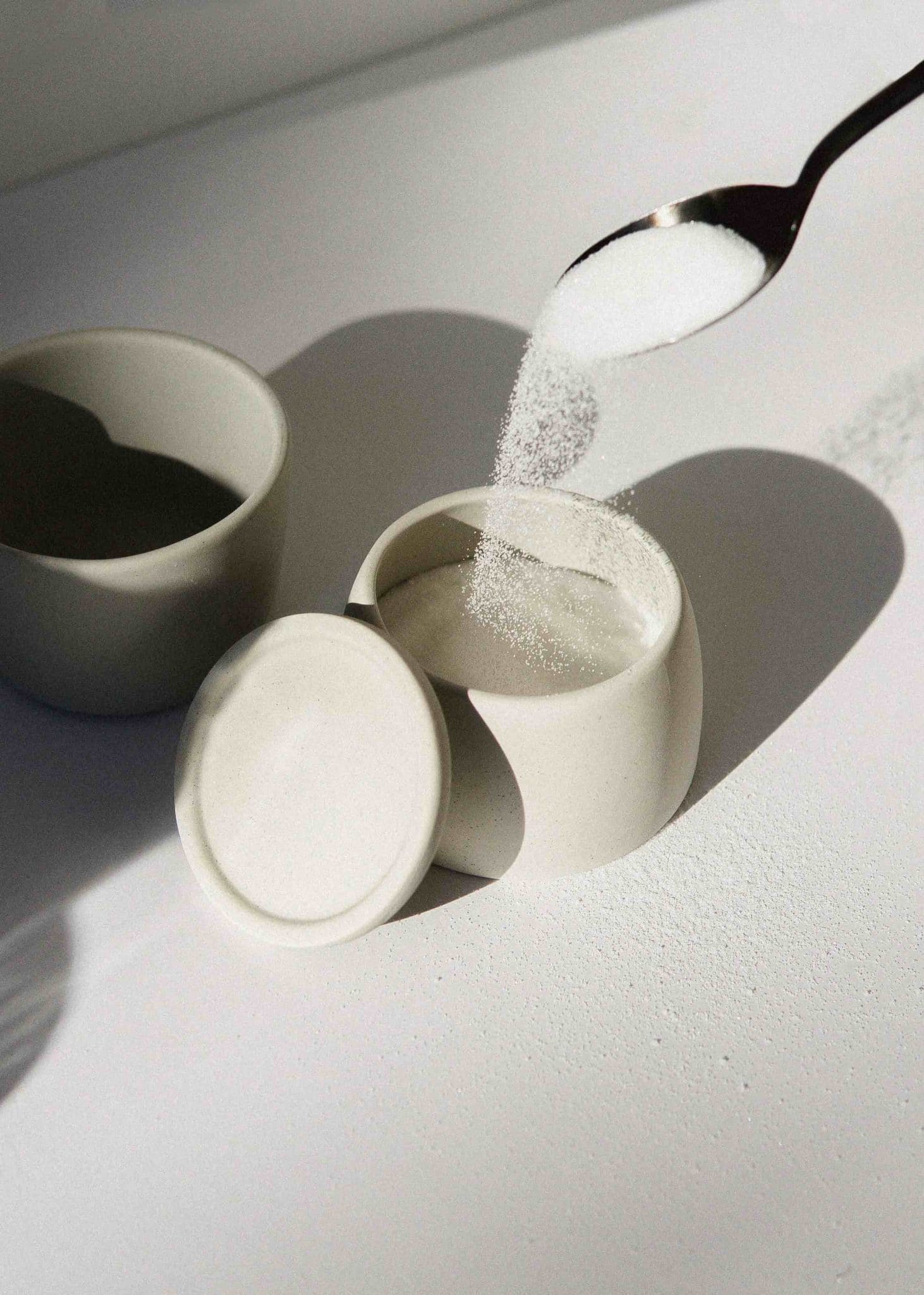Parasite cleanse? Parasites in humans? It’s not really something anyone likes to hear, right? Most of us think they only exist somewhere far away, not something that could ever affect us. But the truth is, they’re part of our world. We all come into contact with tiny organisms every single day. Most are harmless, some even helpful. However, sometimes, a few manage to sneak in and settle within the digestive system without our noticing.
You might not even realize it at first. Perhaps you feel a little more tired than usual, your skin acts up for no apparent reason, or your digestion just doesn’t feel right. These things can build up slowly.
That’s where a natural parasite cleanse can be helpful. It’s not about fighting your body or taking anything harsh. It’s more like giving your system space and care to reset. When you focus on healthier and lighter meals, herbs, and sufficient rest, your body can naturally find its rhythm again. It knows how to heal; it just needs a little support.
What Is a Parasite Cleanse
A parasite cleanse is, at its core, about giving your body a bit of help and a reset. Over time, things can accumulate in the body. Sometimes it’s toxins, sometimes stress, and sometimes it’s organisms that end up where they shouldn’t be in your gut. You might not notice at first, but your body does.
Instead of turning to strong medication or anything too aggressive, a lot of people prefer to take a softer path. Things like gentle herbs, whole foods, and some changes in daily habits can do more than you’d expect. It’s not a fight, it’s more like support. You let your body do what it naturally knows how to do: clean, balance, restore.
Many people who undergo a parasite detox also modify their eating habits temporarily. Lighter, mostly plant-based meals. Herbal teas that calm the stomach. A few traditional supplements create an environment where these unwanted guests simply can’t stick around.
When your digestion slows down, so do you. However, when your gut gets a chance to rest and reset, your energy starts to come back. Your skin looks clearer. You just feel lighter. It’s like a quiet spring cleaning that happens inside you.
Understanding Parasite Infections in Humans
Parasites can end up inside us sometimes through food that wasn’t washed quite enough, or maybe just a glass of water on a trip. You probably wouldn’t even notice at first. They don’t make a big entrance; they settle quietly and start taking a little bit of your energy each day. People start to say they just feel off, tired for no reason, bloated after eating, or craving weird foods they usually wouldn’t.
Of course, it’s not always parasites. Our bodies react to all sorts of things. But when your gut isn’t happy, everything else starts to feel off, too. And with the way we live today, all the stress, quick meals, and lack of rest, our digestion sometimes can’t keep up. That’s when a gentle parasite cleanse can make a big difference. Not in a dramatic way, but more like giving your system a breath of fresh air, helping it feel light and balanced again.
How Parasite Cleanses Work
You can think of a parasite cleanse in three gentle stages:
The first one is preparation, when you start eating lighter, adding more fiber, and drinking enough water to help your body open up those detox pathways. It’s almost like telling your body, “We’re resting the digestion now and getting ready to clean things up.”
Then comes the actual cleansing part. It’s always best to undergo a parasite cleanse program under the guidance of an expert, as proper supervision ensures that the detox process is both safe and effective.
During the cleansing program, the digestive system is given time to rest, allowing the body’s natural detoxification and self-cleansing mechanisms to activate more effectively. As the body restores its balance, it becomes better equipped to eliminate accumulated toxins, waste, and even parasitic organisms in a safe and natural way.
And finally, there’s the post cleanse stage, where you focus on nourishing foods, maybe some fermented veggies, or a good probiotic to bring your gut back into balance.
This is a gentle approach without rush or harsh reaction. You’re working with your body, not against it. And somewhere along the way, you start to feel a little lighter, more grounded, and even a bit clearer in your mind.
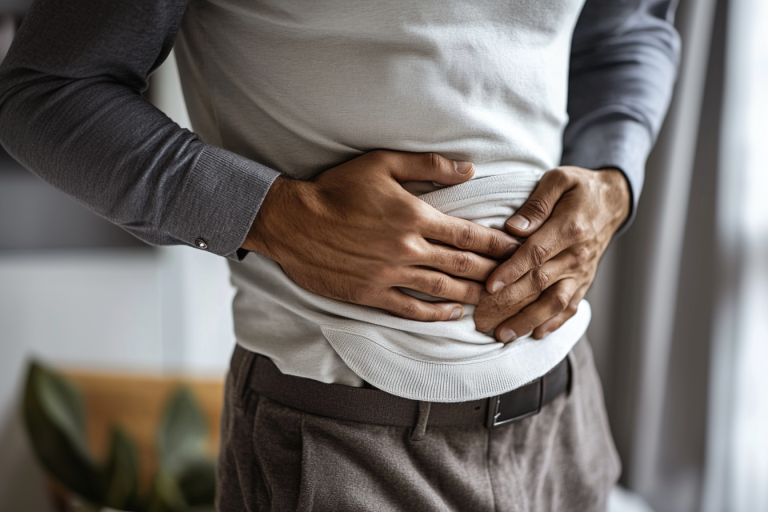
Common Parasite Symptoms in Humans
Many parasites can be contracted by consuming contaminated water or food, travelling, not washing hands properly or being in places that contain large amounts of parasites. According to the Centers for Disease Control and Prevention (CDC), the most common foodborne parasitic infections in the United States include:
- protozoa, such as cryptosporidiosis, giardiasis, toxoplasmosis, and cyclospora
- roundworms, such as trichinosis and anisakiasis
- tapeworms, such as diphyllobothriasis and taeniasis
Depending on what parasite you have and what body system it affects, symptoms of parasitic infections may include:
- abdominal pain
- diarrhea
- nausea
- vomiting
- dehydration
- unintended weight loss
- fever
- flatulence
- constipation
- swollen lymph nodes
- aches and pains
- itching
Digestive Symptoms of Parasites
Sometimes it’s hard to tell what’s really going on in your stomach. You eat something simple, yet you feel bloated, gassy, or heavy for hours. These minor signs are often your body’s way of saying that your digestive system is trying to restore its balance. When parasites settle in the intestines, they can quietly interfere with how your body digests food and absorbs nutrients.
Over time, this imbalance may manifest as low energy, unexplained weight changes, or irregular bowel movements. Some people also notice occasional nausea or abdominal discomfort that doesn’t seem to go away.
These symptoms don’t always mean something serious, but they’re worth listening to. Your gut often knows before you do when something isn’t right.
During this time, it is helpful to treat your digestion gently, eat light, fiber-rich meals, drink plenty of water, and include herbs that naturally support gut health. At TheLifeCo, instead of suppressing these signals, you can listen to your body and give it what it needs to heal and find balance again.
Physical Signs You May Have Parasites
Skin Conditions & Problems
Hives, rosacea, eczema, skin irritation, and unexplained rashes can all indicate the presence of intestinal parasites. Even with over-the-counter remedies, if your rashes, hives, and itching don’t significantly improve, it might be more than just a typical skin problem.
Skin diseases have a somewhat complicated mechanism. Immunoglobulin E (IgE), an antibody produced by the immune system, can be stimulated by intestinal parasites. Your body may then experience allergic reactions, including skin issues that appear to have no apparent cause.
Muscular and Joint Pain
If you have a parasitic infection, you might experience joint and muscle pain due to inflammatory toxins released by parasites that invade the muscles and joints, impairing your range of motion and mobility.
Eating raw or undercooked meat that contains larvae or young worms can allow these parasites to enter your body, causing pain in your muscles and joints. The intestinal parasite is present when painful, aching muscles or joints do not improve with over-the-counter remedies.
Anemia
Itchiness
Parasites in the body can lead to itching. Some parasites cause this discomfort by burrowing beneath the skin and laying eggs. For example, pinworms can cause irritation around the anus and localized itching.
The immune system responds to these parasites by producing Immunoglobulin E (IgE), which are antibodies that travel to cells and release chemicals that trigger an allergic reaction, as the body perceives these parasites as harmful invaders.
Bloating
Bloating can occur due to an accumulation of excess gas in the gastrointestinal tract, which may be caused by an intestinal parasite. One such parasite, Giardia, can lead to symptoms like bloating and a distended stomach, which can be uncomfortable if left untreated. The severity and duration of symptoms can vary based on the specific parasite involved.
Older adults and individuals with pre-existing serious health conditions are more susceptible to complications. It’s also possible to have a parasite in your stomach without experiencing any symptoms. Medical professionals note that symptoms can differ widely among individuals, and not everyone will react the same way to a parasitic infection. For example, many people infected with the parasitic worm Ascaris typically show no symptoms at all.
When to Seek Medical Attention
Your body can usually reestablish equilibrium on its own, especially with the help of a healthy diet, adequate rest, and mindful living. However, it may be wise to consult a healthcare provider if symptoms persist despite your efforts.
Getting a simple test can help you understand what’s really going on inside if you’ve been dealing with persistent digestive problems, unexplained weight loss, persistent fatigue, or changes in your skin and energy levels.
Seeking advice is just an act of awareness; it doesn’t imply that something is “wrong.” You can take the appropriate actions to assist your body in regaining its natural rhythm once you have a better understanding of it. TheLifeCo views cleansing as something more profound than a quick fix. If you have questions about cleansing, please click here to learn more.
Types of Human Parasites
Parasites can affect humans in various ways, and understanding the primary types can help you recognise parasite symptoms early and support your body naturally.
Understanding the type of parasite is crucial to selecting the appropriate approach. Combining natural parasite cleanse methods, a supportive diet, and lifestyle adjustments can help your body create an internal environment where parasites struggle to thrive, all without harsh treatments.
The most common human parasites include:
Intestinal Parasites
These include worms such as tapeworms, roundworms, and hookworms that reside in your digestive system. They can cause bloating, irregular bowel movements, nutrient deficiencies, and sometimes unexplained weight loss. Recognizing these signs is the first step toward a gentle parasite cleanse for humans.
Blood and Tissue Parasites
Some parasites, such as certain protozoa, can move beyond the gut and affect other tissues in the body. They may trigger fatigue, skin changes, or mild inflammation, reminding you to pay attention to persistent physical signs that you may have parasites.
Ectoparasites
These live on the skin rather than inside the body. Examples include lice, scabies mites, and ticks. They often cause visible irritation, itching, or rashes. Mindful hygiene and natural methods for parasite cleanses can alleviate these symptoms and prevent external parasites.

How to Get Rid of Parasites in Your Body
Getting rid of parasites is not an instant process, but rather a gradual and thoughtful one. The goal isn’t to force something out, but to support your body’s natural defences so those unwanted organisms can no longer hold space. Below are the most widely accepted approaches, some medical and many natural, that people combine wisely with professional guidance.
Medical Treatments for Parasite Infections
When a parasitic infection is confirmed (via stool tests, blood work, or imaging), a healthcare provider often prescribes antiparasitic medications. These may include mebendazole, albendazole, or other targeted drugs, depending on the type of parasite and its location.
These treatments are powerful tools when used correctly; they can significantly reduce parasite load and relieve symptoms. But because they act strongly, they also carry potential side effects. That’s why pairing them with gut support and detox-friendly practices can make the recovery smoother.
Natural Parasite Cleanse Methods
Alongside medical options, many people try natural methods as supportive measures. Here are some that are commonly discussed in holistic health circles, supported by case reports and traditional use:
Herbal allies: Herbs such as wormwood, black walnut hull, clove, and oregano, are frequently mentioned.
Seed therapies: Pumpkin seeds are rich in cucurbitacin, which can help paralyse worms, and papaya seeds are traditionally used for their anthelmintic effects.
Probiotic and fiber support: Rebuilding a healthy gut microbiome with fermented foods, prebiotics, and probiotics helps create an environment where parasites are less likely to flourish.
Hydration & digestive health: Drinking enough water helps your body naturally flush waste. Herbal teas, apple cider vinegar, or gentle digestive bitters to aid in the process.
Importantly, these natural approaches should never replace medical evaluation and treatment when needed. Some “parasite cleanse kits” sold online are unverified, may interact with medications, or cause undue strain on the body.
Parasite Detox Protocols
The following information has been structured in line with TheLifeCo’s award-winning and clinically proven detox programs, which are conducted under medical supervision to ensure safety and effectiveness. These parasite detox protocols support the body’s natural cleansing and self-healing abilities without the need for harsh or forced interventions.
Here’s how a typical parasite detox process may look within The LifeCo’s detox framework:
1. Initial Assessment and Guidance
Each detox program begins with a professional consultation and, when needed, baseline evaluations to understand the individual’s health condition and any possible parasite-related imbalances. This ensures that every step of the detox process is safe, effective, and tailored to personal needs.
2. Digestive Rest and Nutritional Reset
These detox programs prioritize digestive rest through options such as plant-based nutrition, raw detox meals, or juice fasting. This allows the digestive system to pause and the body to redirect energy toward cleansing and repair..
During this period, foods that may feed parasites (like sugar and processed items) are removed, while nutrient-dense, alkalizing foods help restore internal balance.
3. Cleansing Cycles and Rest Phases
Rather than a single cleanse, TheLifeCo’s programs follow a balanced cycle of active detox and rest phases. This rhythm allows the body to release toxins gradually, maintain energy levels, and support long-term intestinal and immune health.
4. Monitoring and Ongoing Support
Throughout the detox journey, participants are monitored and guided by professionals to ensure optimal results. Follow-up consultations and continuous support help maintain the benefits and promote lasting well-being.
In alignment with TheLifeCo’s philosophy, parasite cleansing is not about quick fixes, but about empowering the body’s own intelligence to detoxify, heal, and regenerate naturally.
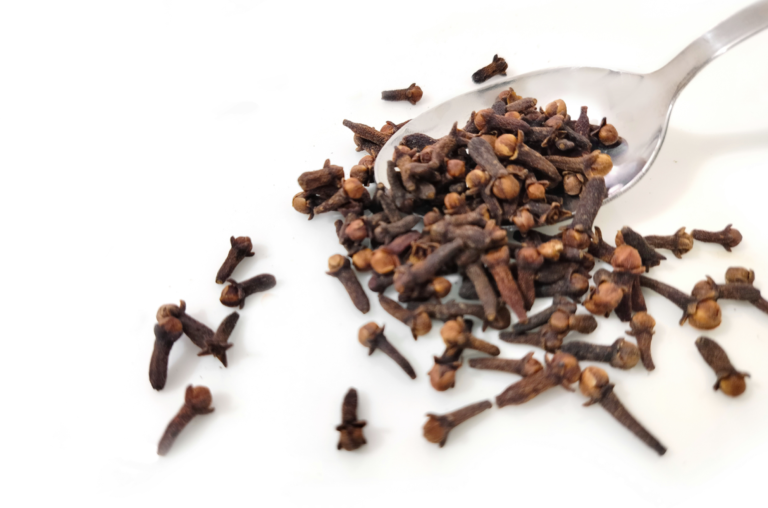
Best Parasite Cleanse for Humans
Top Natural Supplements for Parasite Cleansing
These plant-based ingredients and nutrients have been traditionally used to help create a balanced, parasite-resistant internal environment while promoting digestive health and overall vitality.
- Wormwood (Artemisia absinthium)
Traditionally valued for its role in digestive health, wormwood helps support normal intestinal function and contributes to the body’s natural defense against unwanted organisms. - Black Walnut Hull
Rich in natural compounds like juglone and tannins, black walnut hull has long been used to create an internal environment that is less hospitable to parasites and to promote gentle intestinal cleansing. - Clove
Known for its strong antioxidant and antimicrobial properties, clove helps support digestion and maintain a healthy balance within the gut microbiome. - Probiotics & Prebiotics
Supporting the gut with beneficial bacteria is key during and after any cleanse. Probiotics and prebiotics help restore microbial balance, strengthen the intestinal barrier, and make it more difficult for parasites to thrive.
Herbal Remedies That Target Parasites
Herbal blends can be particularly supportive when paired with a clean, nutrient-rich diet. Commonly recommended options include garlic, oregano oil, and neem. These herbs are not intended to replace medical advice, but they can provide gentle support to the body’s natural cleansing processes.
How to Choose the Right Parasite Cleanser
Selecting a parasite cleanser is about more than following wellness trends. It’s about choosing a safe, effective, and well-structured program that genuinely supports your body’s natural detoxification processes. The most reliable cleanses are those with clear ingredient sourcing, evidence-based herbal blends, and professional supervision to ensure balance throughout the process.
At TheLifeCo, each detox program is guided by medical experts and begins with personalised diagnostics to identify your body’s specific needs. This comprehensive approach ensures that you receive the most suitable and effective cleanse for eliminating parasites, toxins, and free radicals, all while respecting your body’s natural rhythm and healing capacity.
Foods That Kill Parasites in Humans
When aiming for a parasite detox, your plate can become one of your greatest allies. While no single food is a silver bullet, certain ingredients carry antiparasitic properties that support your body’s cleansing pathways. Below are foods often discussed in scientific and traditional circles that are always combined with a holistic plan and medical guidance.
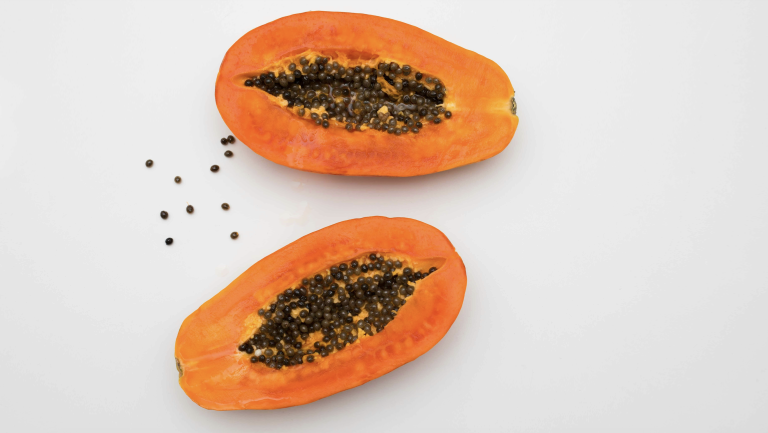
Anti‑Parasitic Foods to Include in Your Diet
Papaya seeds & papaya
One of the most commonly cited natural dewormers, papaya (especially the seeds) contains enzymes such as papain and carpain. In one human study, a formula of air-dried papaya seeds and honey cleared parasites in ~76.7% of participants, compared to just 16.7% in the control group.
Garlic & onion
Long used in folk medicine, garlic and onion contain sulfur compounds believed to have antiparasitic and antimicrobial effects.
Pumpkin seeds
Rich in a compound called cucurbitacin, pumpkin seeds may help paralyse worms, allowing them to pass more easily. Many holistic health guides list them among “foods that kill parasites.”
Pomegranate & its peel
Extracts from pomegranate peel have been shown to exhibit antiparasitic, antiviral, and antimicrobial effects, which are traditionally used to address parasites like Giardia.
Fermented foods & probiotics
Strengthening your gut microbiome is key. Fermented foods like kefir, kimchi, sauerkraut, or probiotic-rich sources help crowd out pathogens and support a healthy internal environment.
Foods to Avoid During a Parasite Cleanse
While eating supportive foods, it’s wise to limit items that may feed parasites or weaken your defenses:
- Refined sugar and sugary snacks are parasites that thrive on sugar.
- Highly processed foods, trans fats, and refined grains
- Undercooked meats or raw fish (unless known safe)
- Overly fermented or mouldy foods, in cases of gut sensitivity
- Excessive caffeine or alcohol during the cleanse period
How to Do a Parasite Cleanse Safely
A parasite cleanse can be rejuvenating when done thoughtfully, but it’s important to approach it gently and mindfully. The goal isn’t to rush the process or use harsh treatments; it’s to support your body’s natural ability to reset, restore balance, and encourage overall well-being.
Step-by-Step Parasite Cleanse Protocol
- Medical Intake & Baseline Testing: Start with a professional consultation and any necessary baseline tests to assess your health status and identify potential parasite-related imbalances.
- Personalised Plan: A clinician designs a detox protocol tailored to your specific needs, dosage, and safety requirements.
- Digestive Rest & Nutritional Reset: Support the body with plant-based/raw detox meals or juice options and remove foods that feed parasites (sugar, processed items).
- Targeted Support: Under supervision, use timed herbal and supplemental supports (antiparasitic herbs, probiotics, digestive aids) to assist natural elimination.
- Cleansing Cycles with Rest Phases: Alternate active cleansing periods and recovery phases to allow the body to gradually eliminate toxins without undue stress.
- Ongoing Monitoring & Adjustment: Regular follow-ups and adjustments by medical staff to track progress and ensure safety.
- Reintegration & Maintenance: Gradually reintroduce supportive foods and practices to rebuild gut balance, optimize nutrient absorption, and maintain long-term wellness.
Duration and Timeline for Flushing Parasites
A safe cleanse is a gradual process, typically lasting one to three weeks, depending on your body and individual goals. Listen to your body throughout, adjusting intensity and dietary choices as needed. Sudden or extreme changes can create stress rather than support.
Combining Diet with Parasite Detox
Integrating a parasite-friendly diet can make a cleanse more effective and sustainable. You can emphasise whole, unprocessed foods, plenty of water, and herbal teas known for digestive support. Avoid excessive sugar, processed snacks, and undercooked meats during this period.
Parasite Cleanse Side Effects and Safety
Starting a parasite cleanse can be a refreshing way to support your digestion, boost your energy, and enhance your overall sense of wellness. However, it’s essential to approach it gently and listen to your body along the way. Even natural cleanses can sometimes cause temporary discomfort, like mild stomach cramps, changes in digestion, or slight fatigue, especially during the first few days.
Pay attention to how you feel. If you notice persistent discomfort, dizziness, or extreme tiredness, it may be a sign to slow down or adjust your routine. Staying hydrated, eating nourishing foods, and taking it step by step can help your body adapt without feeling overwhelmed.
The goal is not to push your body to its limits but to support it in releasing what no longer serves you. A mindful parasite cleanse, done safely, can leave you feeling lighter, more energised, and balanced, helping your digestive system and overall well-being thrive naturally.

How to Rid Your Body of Parasites Permanently
Eliminating parasites for good isn’t about a one-time cleanse, it’s about creating lasting habits that support your body’s natural defences. By nurturing your digestive system, strengthening your immune system, and maintaining a balanced lifestyle, you can reduce the likelihood of parasites reestablishing themselves.
Prevention Strategies After Cleansing
Maintaining a Parasite-Free System
Keeping your gut balanced is key. Regularly consuming fiber-rich foods, probiotics, and staying hydrated supports healthy digestion and helps your body naturally expel any unwanted guests. Limiting processed sugars and heavily refined foods also reduces the nutrients that parasites thrive on, keeping your system resilient.
Lifestyle Changes for Long-Term Protection
A parasite-free system goes beyond just cleansing or supplements. Maintaining good hygiene and a clean, nutrient-rich diet plays a central role in keeping your body resilient against parasites. Coupled with stress management, regular physical activity, and adequate sleep, these habits strengthen the immune system and create an internal environment less hospitable to parasites.
Diagnosing Parasites Before Starting a Cleanse
Before starting any parasite cleanse, it’s important to tune in to your body and understand what’s happening internally. While many people choose natural methods to support their gut, knowing whether parasites are present can help you approach cleansing more effectively and safely.
Medical Tests for Parasite Detection
Sometimes subtle symptoms like bloating, fatigue, or skin issues can hint at a parasitic presence, but they’re not always definitive. Simple lab tests or stool analyses can provide valuable insights if something unusual is happening in your digestive system. These tests aren’t always necessary for a gentle, preventive cleanse, but they can give extra confidence if symptoms persist or are concerning.
Self-Assessment vs Professional Diagnosis
Being attentive to your body’s signals is essential. Changes in digestion, appetite, sleep, or energy levels can all provide insights into your gut health. If you’re uncertain about any changes, it’s always a good idea to consult a healthcare professional. A careful self-assessment, along with professional guidance, ensures that your cleansing process enhances your well-being instead of hiding underlying issues.
When Home Remedies Aren’t Enough
Natural remedies and dietary adjustments are effective for many people; however, there are times when symptoms may indicate something more serious. If discomfort is persistent, severe, or accompanied by other health concerns, it’s a sign to seek professional advice before continuing any cleansing routine.
Professional Parasite Cleansing Programs
For those who want structured support, professional cleansing programs can provide step-by-step guidance. These programs often combine nutrition, herbal support, and healthy lifestyle changes to help you maintain gut health safely and effectively, all while encouraging a holistic approach to wellness.
FAQ
How do you know if your body is full of parasites?
Parasites can be sneaky, but your body often gives hints, such as bloating, unusual fatigue, or sudden cravings. Listening to these signals and paying attention to digestive changes can help you catch them early.
How long does it take to kill parasites in your gut?
It depends on the type of parasite and the method you use; natural cleanses or dietary adjustments usually take a few weeks to show effects. Patience and consistency are key to supporting your body gently.
How do I check myself for parasites?
You can start by observing your body for digestive issues, skin irritations, or unexplained fatigue. For certainty, stool tests or professional check-ups are the safest way to confirm their presence.
What are 10 diseases caused by parasites?
Some common parasitic diseases include giardiasis, toxoplasmosis, malaria, pinworm infections, trichinosis, tapeworm infections, leishmaniasis, schistosomiasis, cryptosporidiosis, and strongyloidiasis. These can affect digestion, skin, or other organs, depending on the type.
What are the first signs of stomach worms?
Early signs often include bloating, mild stomach cramps, or changes in appetite. You might also notice fatigue or occasional nausea as your body reacts.
What is a 3 day parasite test?
It’s a stool test done over three days to check for parasites that might not show up in a single sample. This gives a clearer picture of your gut health.
